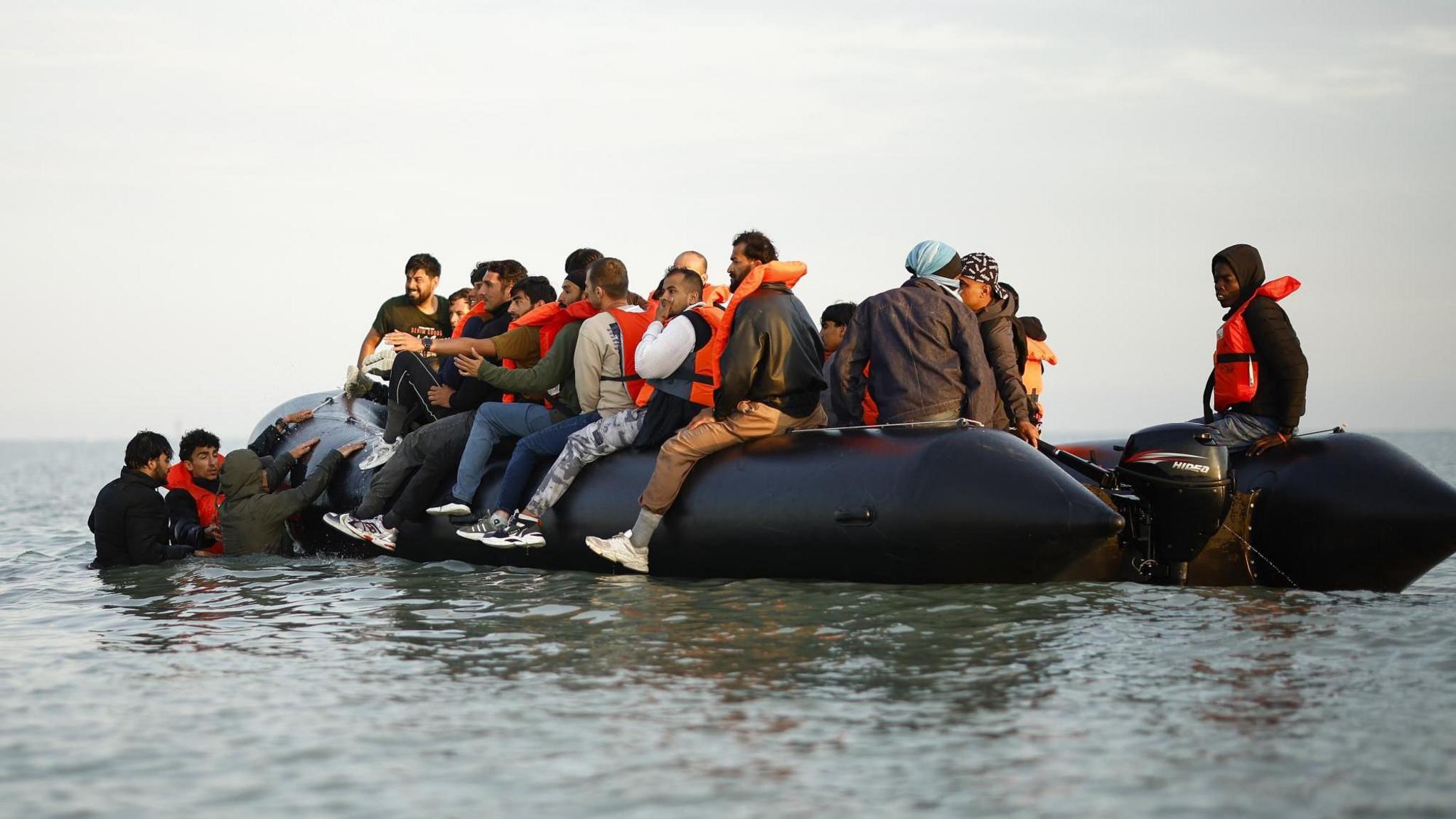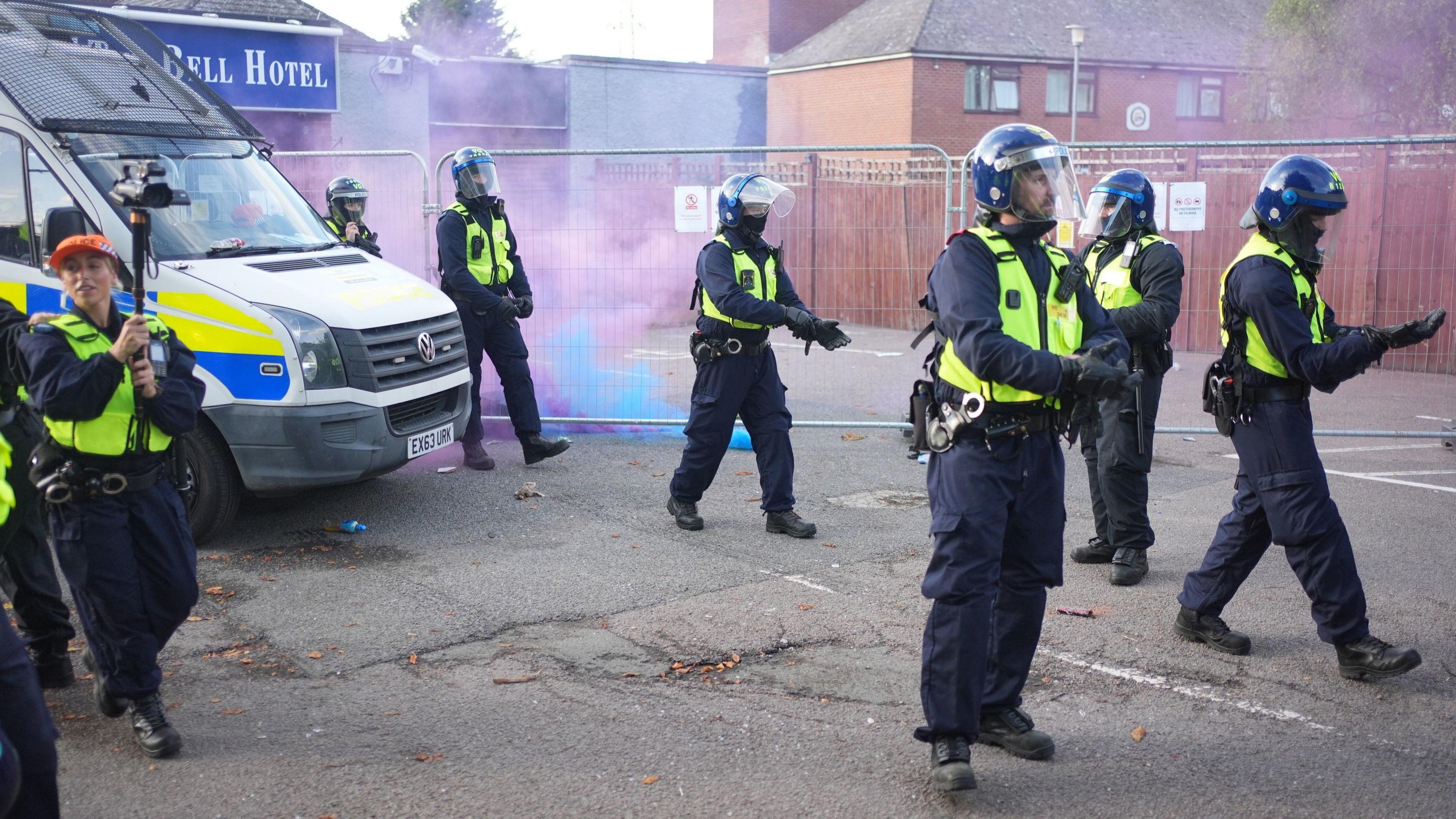Gang leaders and corrupt officials could be named in smuggling sanctions

People financing small boats will be targeted in the wave of new sanctions
- Published
Gang leaders, corrupt officials and police officers, fake passport dealers and firms supplying small boats could be publicly named in UK sanctions targeting people-smuggling.
The first measures are due to be unveiled on Wednesday and are seen as central to government plans to tackle criminal networks behind the crossings.
Individuals and companies are expected to be hit with asset freezes, travel bans, and restrictions from engaging with the UK's financial system under the sanctions.
It is understood the first tranche will include the names of around two dozen people accused of facilitating the trade or profiting from it - but the Migration Advisory Committee said the impact could be limited.
Its deputy chair, Dr Madeleine Sumption, said she would be "surprised" if the sanctions were a "game changer for the industry as a whole, and for the existence of the small boats route".
"There are so many people involved in the industry that targeting people individually is probably only going to have an impact around the margins," she told BBC Radio 4's Today programme.
She added: "The impact is dependent to an extent on the co-operation of other countries where smugglers are operating."
Further sanctions packages are expected to include corrupt public officials and police officers, while the initial list published on Wednesday is intended to signal the type of targets the UK is pursuing as part of longer-term efforts to disrupt smuggling networks.
Sir Keir has pledged to "smash" people-smuggling gangs and made tackling illegal migration at source a key election pledge last year.
The government says criminal gangs are preying on the hopes of vulnerable people - but questions have been raised over how easily sanctions can be enforced, particularly given the international nature of smuggling networks.
Foreign Secretary David Lammy said the sanctions regime was "the first of its kind anywhere on the planet" and a key step in ending "the status quo" where criminal gangs prey on "vulnerable people with impunity".
Speaking on BBC Radio 4's Today programme, he added: "We are leading, others will follow."
As well as ringleaders in the trade, the sanctions are expected to target enablers like financial middlemen, who push money through Hawala networks, an informal system for organising money transfers often used by smugglers.
In the first six months of this year, more than 20,000 people crossed in small boats, an increase of nearly 50% on the previous year, according to Home Office data.
Enver Solomon, CEO of the Refugee Council, said sanctions "may help disrupt some of the criminal networks profiting from human misery", but warned "enforcement alone will not stop dangerous Channel crossings" without safe alternatives.
Ministers say the new sanctions will target immigration crime gangs "where traditional law enforcement and criminal justice approaches cannot reach".
Home Secretary Yvette Cooper said the new sanctions regime is a "decisive step in our fight against the criminal gangs who profit from human misery".
"It will allow us to target the assets and operations of people-smugglers wherever they operate, cutting off their funding and dismantling their networks piece by piece," she said.
Responding to the plans, shadow home secretary Chris Philp said: "The truth is you don't stop the Channel crossings by freezing a few bank accounts in Baghdad or slapping a travel ban on a dinghy dealer in Damascus."
The announcement comes after tensions in Essex at the weekend during a protest outside a hotel used to house asylum seekers, which was triggered after the arrest and charge of an asylum seeker on suspicion of alleged sexual assaults.
Police said the protest descended into "mindless thuggery" after flares and bottles were thrown towards officers.
Reform UK leader Nigel Farage described the people protesting as "genuinely concerned families" and said parts of the country are "close... to civil disobedience on a vast scale".
Earlier this month, the government signed a "one in, one out" deal with France to return migrants to France for the equivalent number of legal asylum seekers, subject to security checks.
Related topics
- Published22 October

- Published21 July
